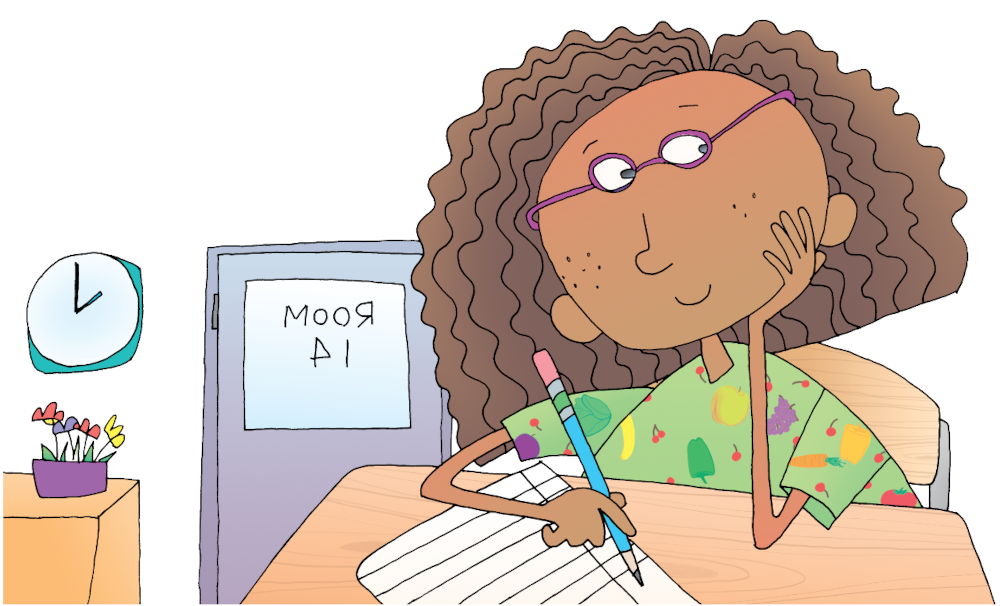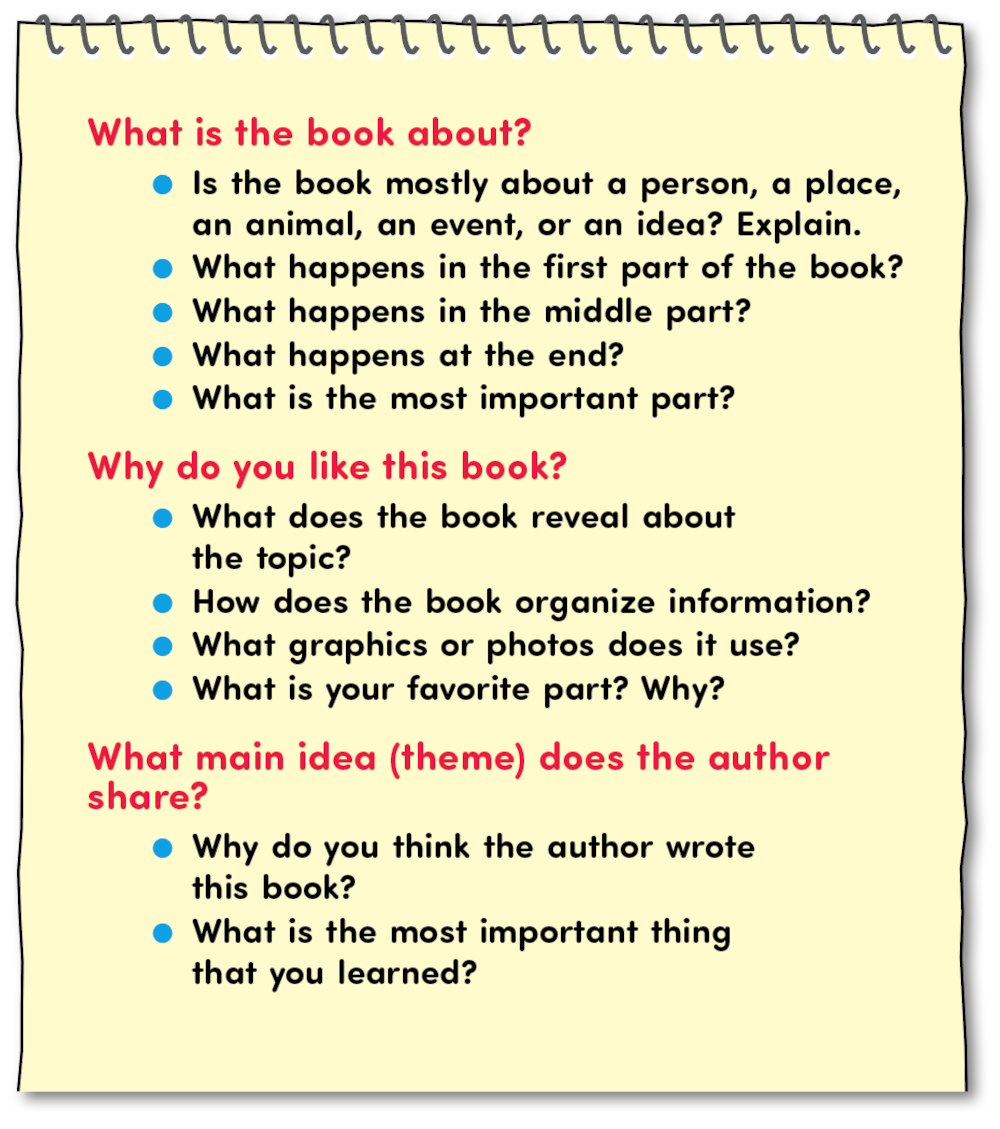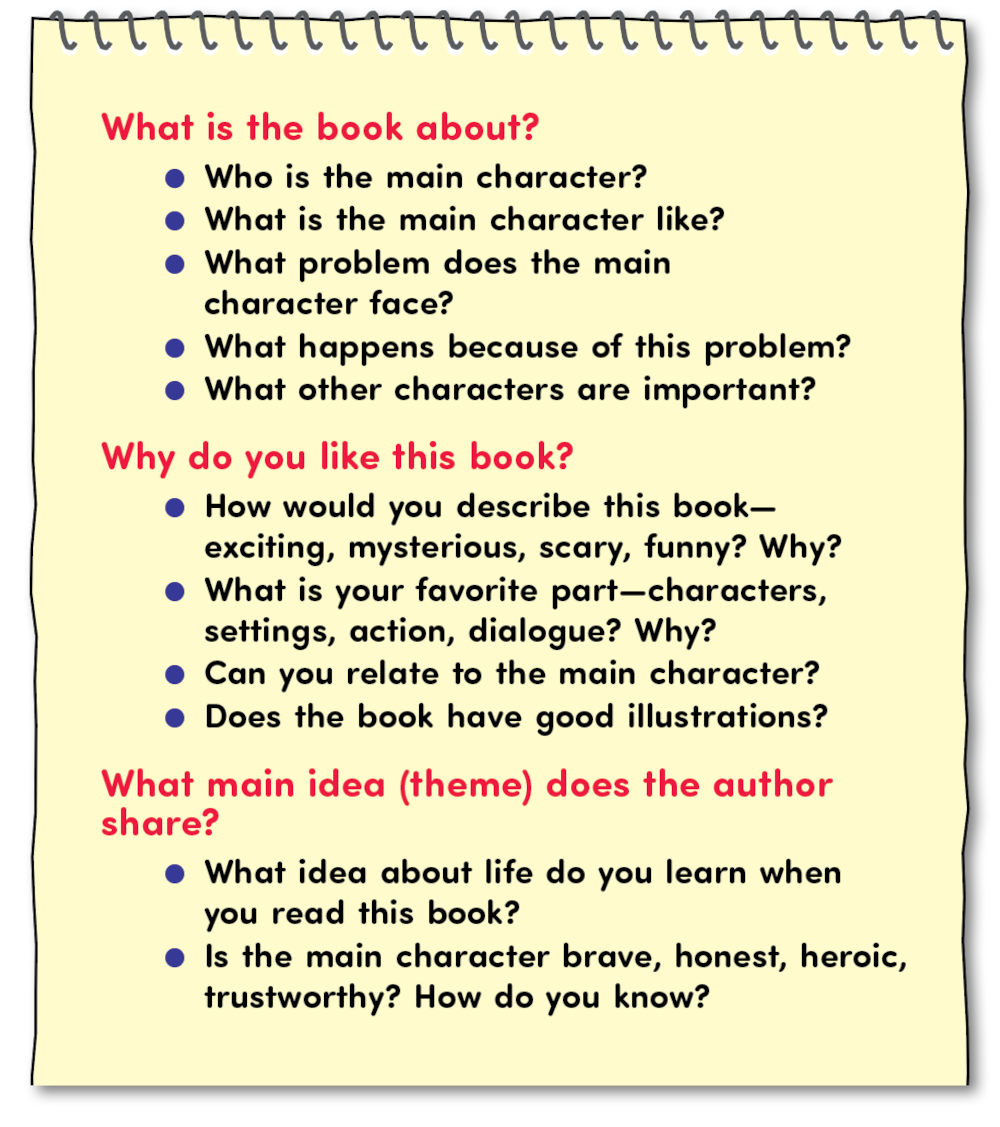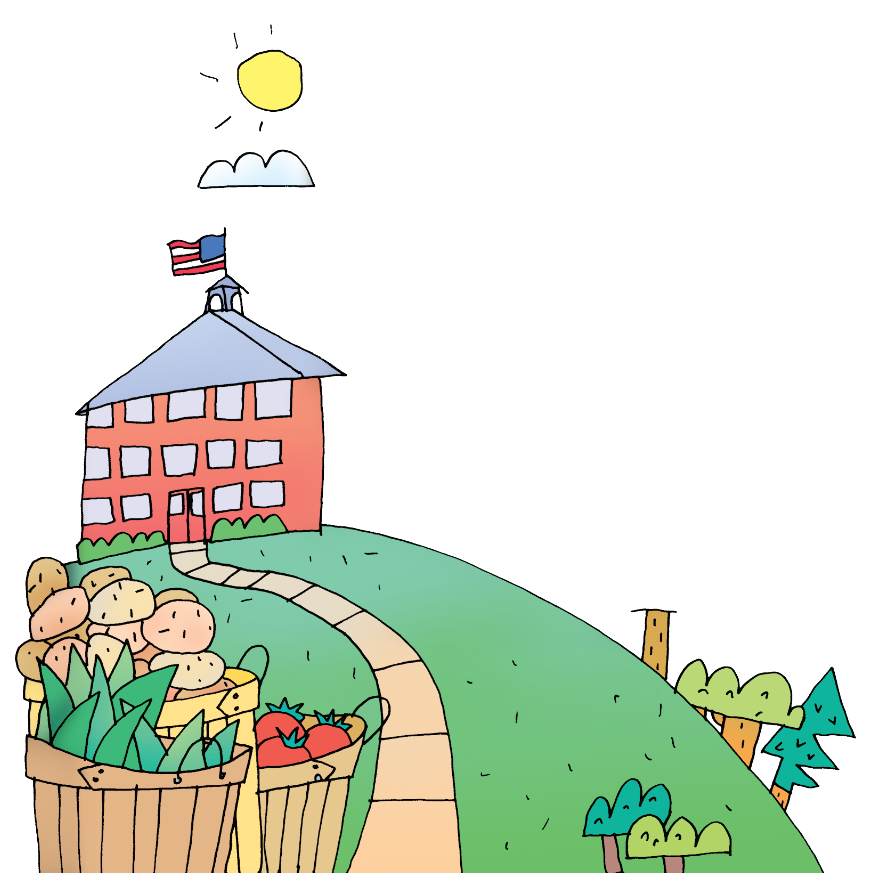WT 147
Page 147
Writing Book Reviews
It’s reading time in Room 14! What book do you want to read next? What book do you want your friends to read? Is the book fiction or nonfiction? Does it make you laugh or think hard? Do you like the main character?
You can write a book review to share your ideas about any book. Other kids can read your review and decide what to read next.
Writing a Review
Your book review will sum up a fiction or nonfiction book. What is the book about? Why do you like it? What main idea does the author share? Your book review is like a movie preview, giving readers a first glimpse and getting them excited to read!

WT 148
Page 148
Getting Started
Book reviews usually answer three questions:
- What is the book about?
- Why do I like this book?
- What main idea does the author share?
Sample Book Review: Nonfiction
Here’s how Jacob Frasch answered these questions in his review of a nonfiction (factual) book.
The Age of Dinosaurs
What is this book about? What Was the Age of Dinosaurs? by Megan Stine is a book about how dinosaurs were discovered in the 1800s, and how they lived in the Mesozoic Era long ago.
Why do I like this book? I love reading about the different kinds of dinosaurs. Did you know the first dinosaur was Eoraptor, which means “dawn stealer”? It was about the weight of your cat but it ran fast on two feet and was deadly. Later dinosaurs got bigger, like Plesiosaurus in the ocean. It looked like the Loch Ness Monster!
What main idea does the author share? This book shows how dinosaurs changed over the Mesozoic Era. An asteroid ended that age, but some dinosaurs became birds!
WT 149
Page 149
Sample Book Review: Fiction
Here’s how Kari Meyer reviewed a fiction book. Each paragraph answers one of the review questions.
Crow Call
What is this book about? Crow Call by Lois Lowry is a story about a young girl named Liz who is going hunting with her dad. Liz is scared because she has never gone hunting before. She is also nervous because her dad has been gone for a long time. He was fighting in a war. Liz’s job is to blow into the crow call to attract the crows. Her dad has the rifle.
Why do I like this book? I really like this book because the story seems so real. It could really have happened. The illustrations by Bagram Ibatoulline are cool, too, because they show so much detail.
What main idea does the author share? This book shows how Liz and her dad become close again. If you read this book, you will learn how their feelings grow. You will also learn what happens at the hunt! I recommend Crow Call as well as just about anything else written by Lois Lowry.
WT 150
Page 150
Collection Sheet for Nonfiction
The questions on this sheet will help you think about the nonfiction books you review. (Remember that nonfiction is about real things.) Try to answer as many of these questions as you can. (You can use this collection sheet for nonfiction.)

WT 151
Page 151
Collection Sheet for Fiction
The questions on this sheet will help you think about the fiction books you review. (Remember that fiction is about things that are made up.) Try to answer as many of these questions as you can. (You can use this collection sheet for fiction.)

WT 152
Page 152
Writing a Book Review
Prewriting
Select a Book 🟪 Choose a book you are interested in. Choose an adventure story, a fantasy, a sports book—whatever you like.
Collect Ideas 🟪 Use the questions on the previous pages to collect ideas for your review. Keep notes as you read. (Use a collection sheet for nonfiction or a collection sheet for fiction.)
Writing a Draft
Write Your Review 🟪 In the beginning part, make sure to state the title and the author of your book. Use your notes to help you answer the three book-review questions.
Revising
Review Your Draft 🟪 Have you answered the three questions? Are your sentences clear?
Editing & Proofreading
Check for Errors 🟪 Make sure you have spelled the author’s name correctly. Also remember to underline or italicize the book’s title. After you have checked your review for errors, write a neat final copy to share.
WT 153
Page 153

The words listed below will help you understand and write reviews about stories and books.
An autobiography tells the true story of the writer’s life.
A biography tells a true story about another person’s life.
A character is a person (or animal) in a story.
Dialogue is the talking between characters in a story.
The ending, or resolution, brings a story to a close.
An event is a specific action in a story.
Fiction is an invented or made-up story.
The moral is the lesson in a fable, a tale, or another story.
A myth is a story created to explain a mystery of nature.
The narrator is the person or character who is telling the story.
Nonfiction tells about real things.
The plot is the action in a story.
The problem or conflict in a story leads to all of the action.
The setting is the time and place of a story.
The theme is the main idea or message in the book.

Teacher Support:
Click to find out more about this resource.
© 2026 Thoughtful Learning. Copying is permitted.
k12.thoughtfullearning.com